Facebook is a great place to connect with friends and share all sorts of content. On the other hand, it’s also full of threats.
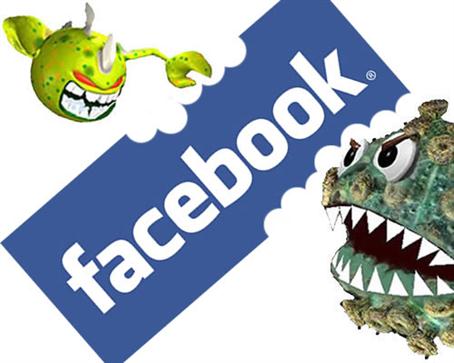
Facebook virus is a commonly used term by users who get infected with “virus” (as they usually describe deceptive online activity) while browsing the social network. Such types of infections usually include a clickbait picture or a link, or a notification with a tricky phrase. The idea of presenting such content is to make users feel curious and click on it. The result is the presence of severe malicious issues on the Facebook profile and sometimes PC malware intrusions. One sure sign that your Facebook account has been affected is the presence of posts that appear to be shared by you while you had no interference.
Common Facebook Virus Attacks
9GAG Facebook Virus
Reddit users – victims of Facebook virus, have reported about strange 9GAG sites on Facebook that display pop-ups with ”Open the link to see full pic” clickbaits. During our research, we have found an extra-long list of spam Facebook accounts that impersonate the official Facebook pages of popular apps and services like 9GAG, WhatsApp, SnapChat, Instagram and other. A lot of the profiles are currently active and it is obvious they are not unintentionally marked as spam. The creators of these rogue Facebook pages and profiles mentioned in this list are highly believable to distribute computer viruses and spam your Facebook accounts. Next time a suspicious page prompts you to click on it or take another action you could simply check whether it is spam that is trying to infect you with a Facebook virus or not, here.
Facebook Virus That Is Spamming Your Friends’ Timelines
Another Facebook virus is reported to spam your friends’ timelines. The virus automatically posts a link, an image or a video on all your friends’ timelines tagging several people. The tagged people are the next potential victims of this Facebook virus supported by clickbait content. How does it spread? Whenever a user clicks on the clickbait malicious content, the suspicious app is unnoticeably added to the Facebook app list infecting this account with a Facebook virus too. Then the rogue app gets the right to write on the timelines of all people in the friends list without asking for permission.
Booby-Trapped Images in Facebook Deliver Locky Ransomware
Last year a spam campaign on the social network was spreading the notorious Locky ransomware. The spammers were using images with compromised text that trigger the ransomware infection.
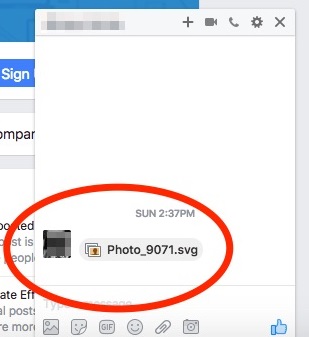
The Locky’s payload could be hidden in image files that have unusual extensions like SVG, HTA or JS. Such file types have the ability to connect online server, download content from it and run it on the computer. If you ever come across files that names follow the pattern – photo_[random numbers].svg in your Messages better stay away from them as any interaction with them could infect your system with Locky ransomware. This Facebook virus could be presumed to be the most vicious one as once it infects the computer it will encrypt important data stored on the drives and make it no longer able to be opened until a ransom payment is completed.
Facebook Notification Virus
Facebook notification virus could infiltrate the computer by click on fraudulent Facebook notifications. Such notifications are usually supported by tempting messages that aim to provoke you to interact with the content. If your curiosity prevails and you click it, you grant access to the virus as well. The virus could then install browser add-ons which will support aggressive advertising campaigns. Thus you will be flooded with advertisements during your online browsing. The presented content on the ads may also hide the potential risk of another malware infection.
Facebook Ray Ban Virus
Once you get infected, the virus will post photos of RayBan sunglasses and tag several friends on them on your behalf. The pictures are trying to convince users that the company offers a great off discount on their sunglasses. However, it is a scam that has a malicious purpose. Except that the virus plagues your Facebook profile there is real chance to be redirected to a corrupted website and unnoticeably get malware on your computer once you click on the image.
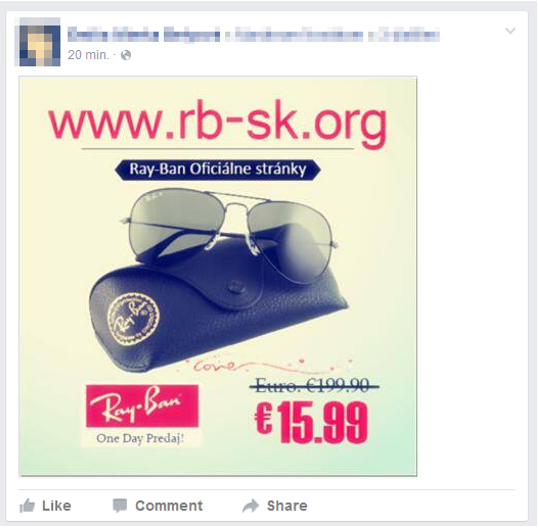
OMG! private video! Facebook Scam
If you receive a Facebook message that contains a link or file stating something similar to OMG! private video! make sure to ignore it. These fake Facebook messages aim to trick you into clicking the malicious link so you can install malware on the computer. Numerous people worldwide believed the scam and became infected with the Facebook virus. Once your account is hacked, the virus is likely to send personal messages to all your friends trying to seem legitimate and infiltrate their systems.
Fake Facebook message alerts users not to accept Jayden K Smith hacker
A hoax message has recently gone viral on Facebook. It warns users not to accept a friend request from Jayden K. Smith as he is a hacker who will hack their Facebook profile and PC. The whole message spread among thousands of Facebook users reads text similar to:
“Please tell all the contacts in your Messenger list, not to accept Jayden K Smith friendship request. He is a hacker and has the system connected to your Facebook account. If one of your contacts accepts it, you will also be hacked, so make sure that all your friends know it. Thanks. Forwarded as received.
Hold your finger down on the message. At the bottom in the middle it will say forward. Hit that then click on the names of those in your list and it will send to them”
However, by simply accepting a friend request, it is hardly possible to get hacked by malicious intenders. The danger comes if someone shares a link and you click on it, it may land you anywhere including websites that will attempt to download a virus on the computer. Such warnings are popular on social media though they are proven to be just hoaxes.
Facebook Messenger Virus
A virus that comes in the form of a link sent by a friend is spreading through Facebook social network application Messenger. The link contains your first name and presents a video with your profile photo set as a thumbnail, as reported. At the very end, it is likely that the link has the extension .graphics. Instead of playing a video after a click on it, a browser notification pop-ups and urges users to download a malicious extension that contains virus code. If you install the extension on your browser, it will automatically install a virus on the system as well.
How to Remove Facebook Virus and Stay Protected?
We will show you several steps that will help you to permanently remove Facebook virus and prevent its future coming. The removal steps cover support for all types of Facebook viruses mentioned above. Beware that by simply changing the password the virus won’t get away from your profile and system so for the best results, we advise you to apply them all.
Step one: Check Facebook app permissions and revoke the permissions of all apps you don’t trust
- Go to the blue Facebook bar and click the pointer that is next to the Quick Help icon. Select Settings.
- Then select Apps from the right menu.
- Check the Apps on your account. If there is any that you do not recognize or seem suspicious remove them by pressing the cross next to them.
In case that you can’t recognize which is the malicious one, there is another option.
- Find the box “Apps, Websites and Plug-ins” and click the “Edit” button.
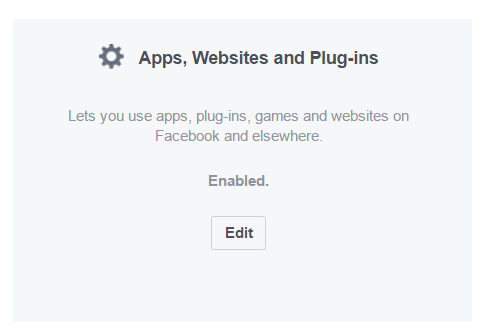
- Click on Disable platform, then click edit again and Enable platform.
By doing this, you will get rid of all your Facebook apps. Since the Facebook virus is an app that has permission to post to your friends’ timelines, it will be removed too.
Step two: Remove suspicious browser extensions and reset your browser
-
1. Start Google Chrome. On the upper-right corner, there a Customize and Control menu icon. Click on it, then click on Settings.
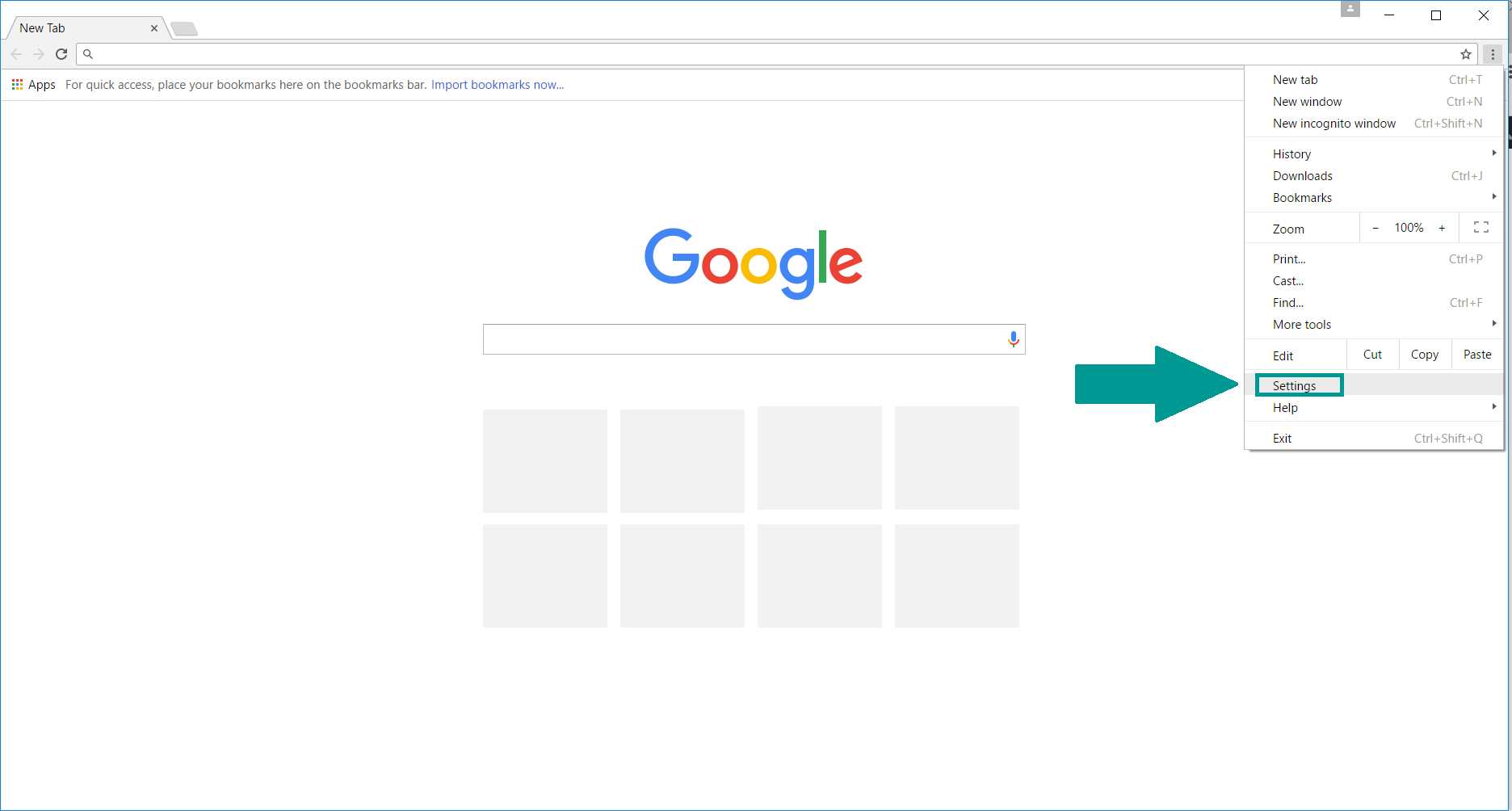
-
2. Click Extensions in the left menu. Then click on the trash bin icon to remove the suspicious extension.
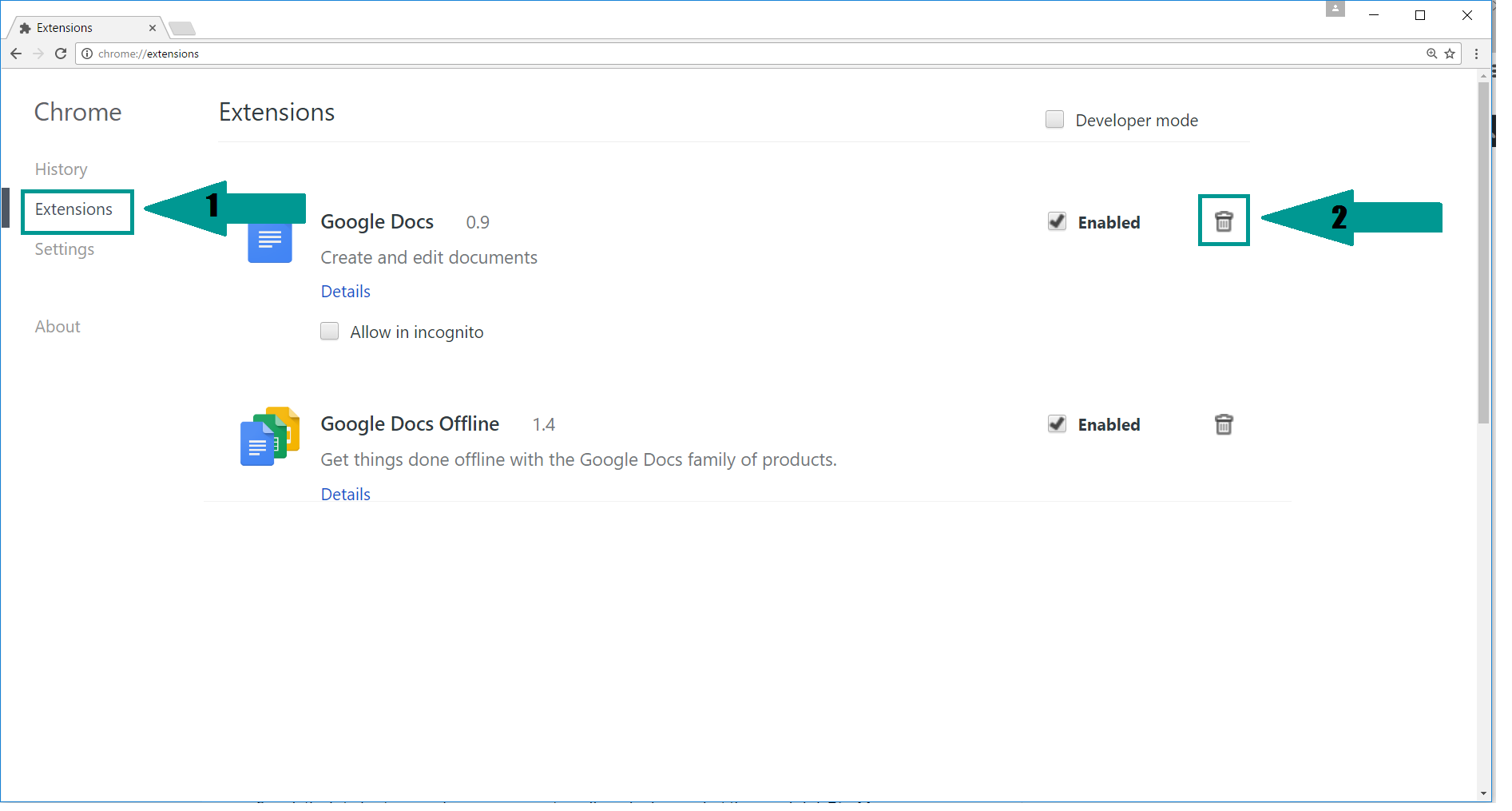
-
3. It’s time to reset the browser to its default settings. Go again to the home page. Click the menu in the top right corner and select Settings. Start typing reset settings in the search box and click the Reset settings button when it appears.
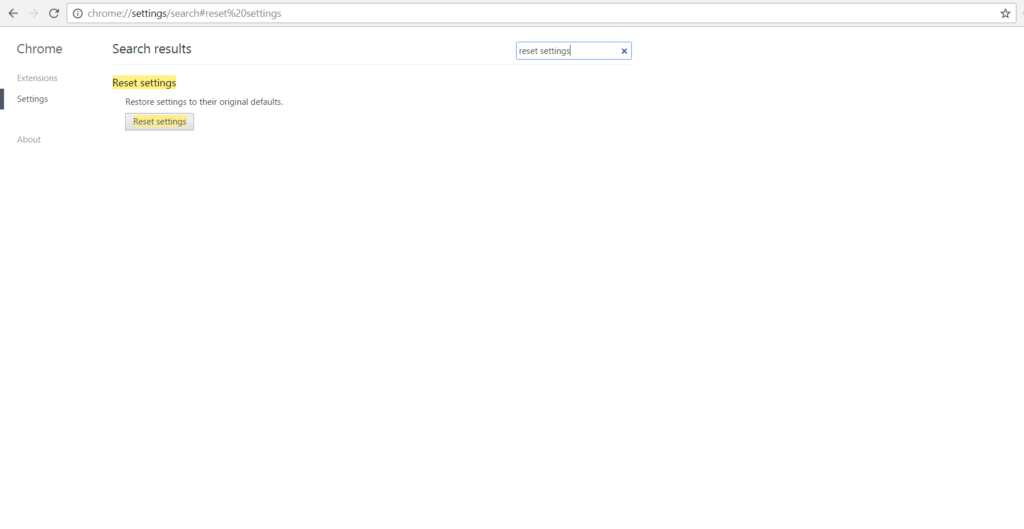
-
1. Start Mozilla Firefox. In the upper right corner, click on the Open menu icon and select Add-ons.
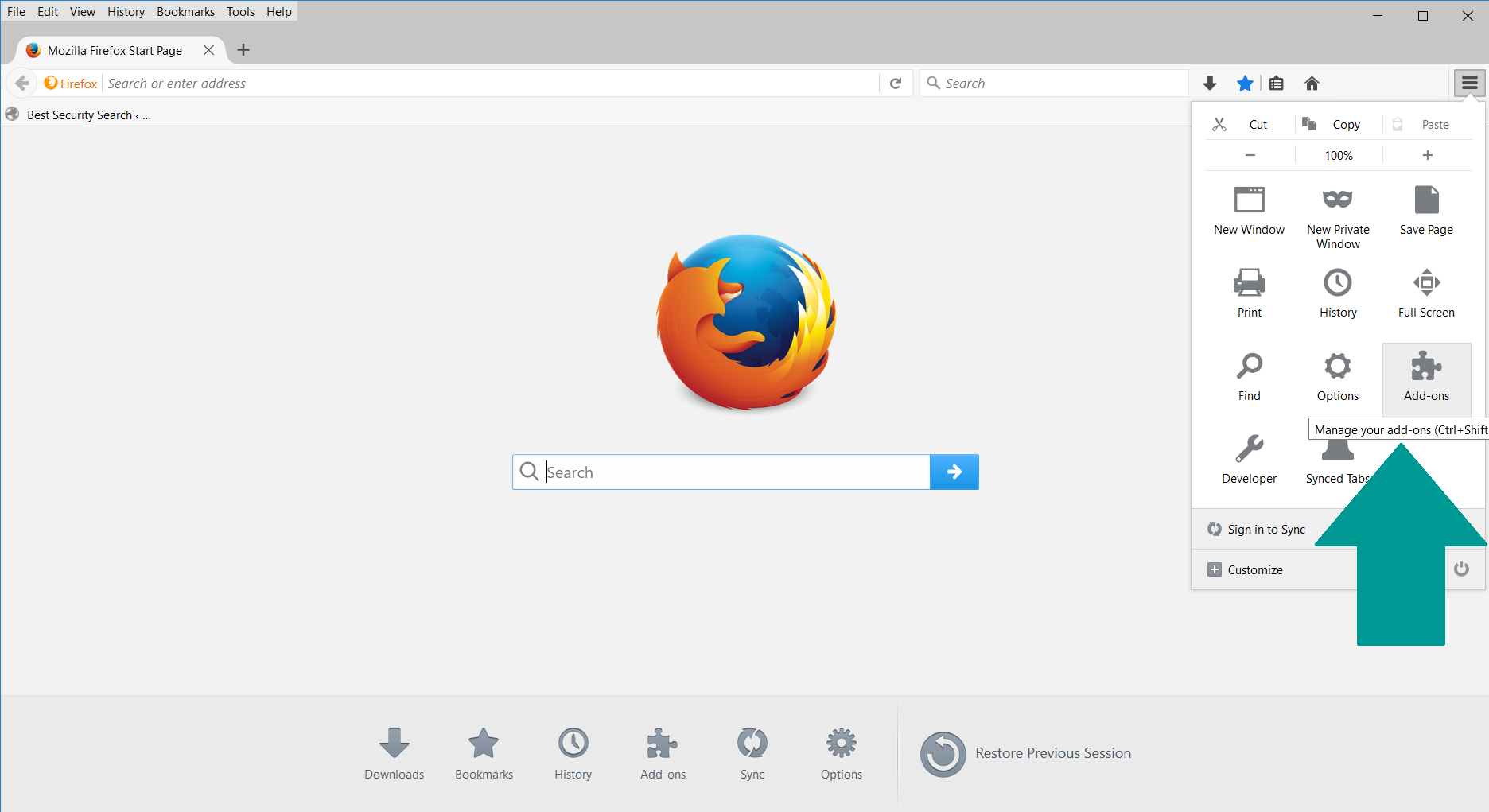
-
2. Inside the Add-ons Manager select Extensions. Search the list of extensions for suspicious entries. If you find any, select them and click Remove.
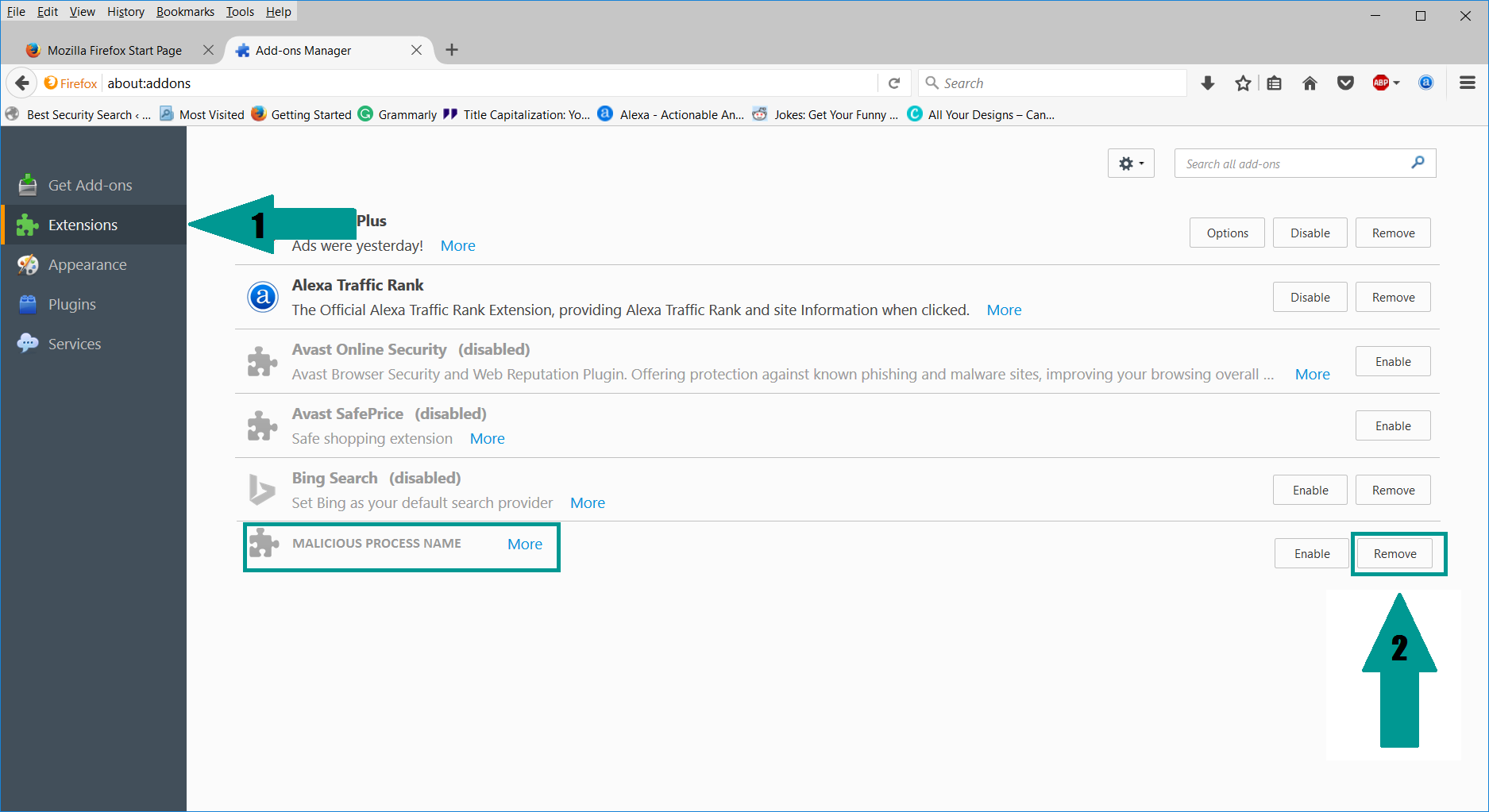
-
3. It’s time to reset the browser to its default settings. Click again on the Open menu icon, then click Options.
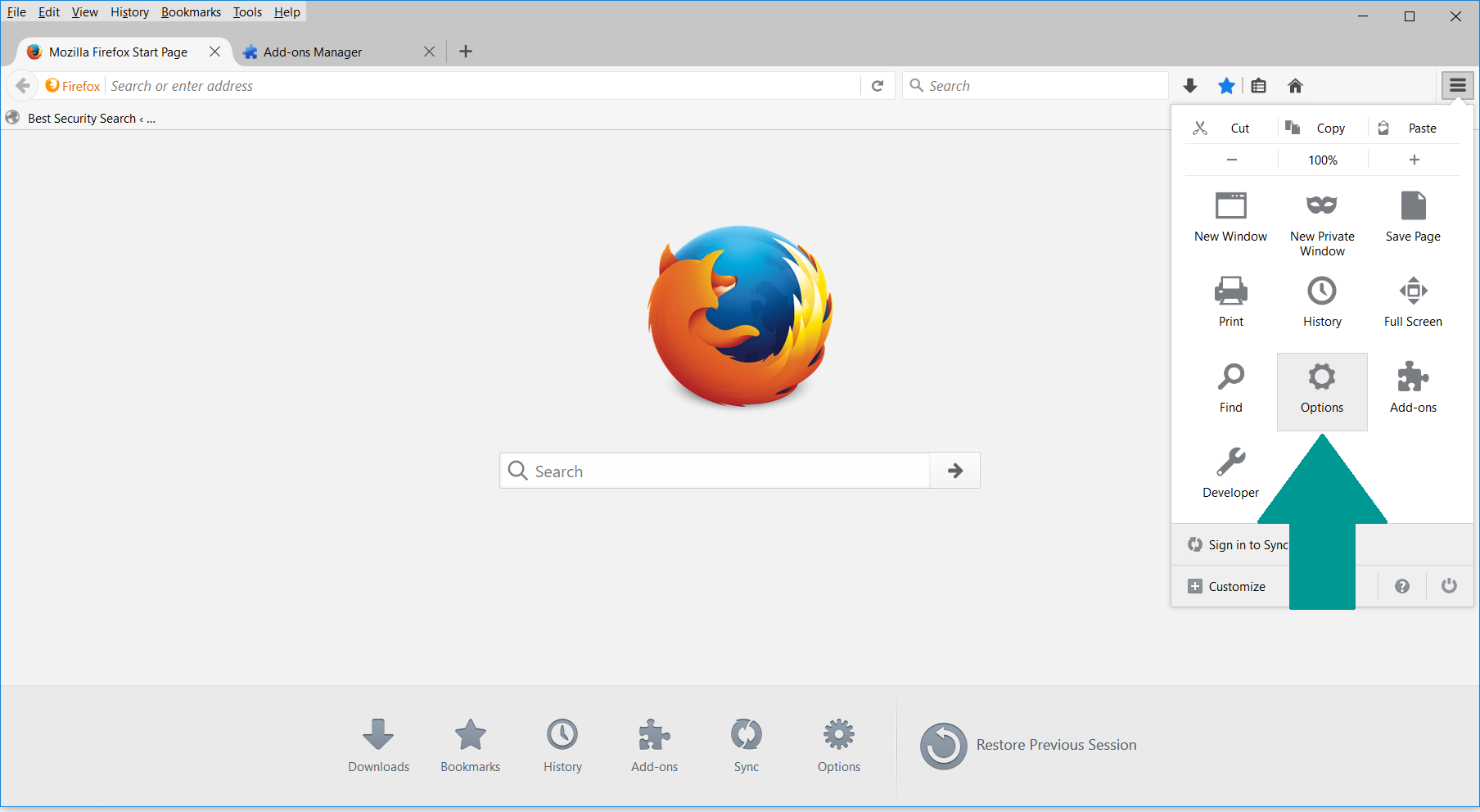
-
4. In the Options window, under General tab, click Restore to Default.
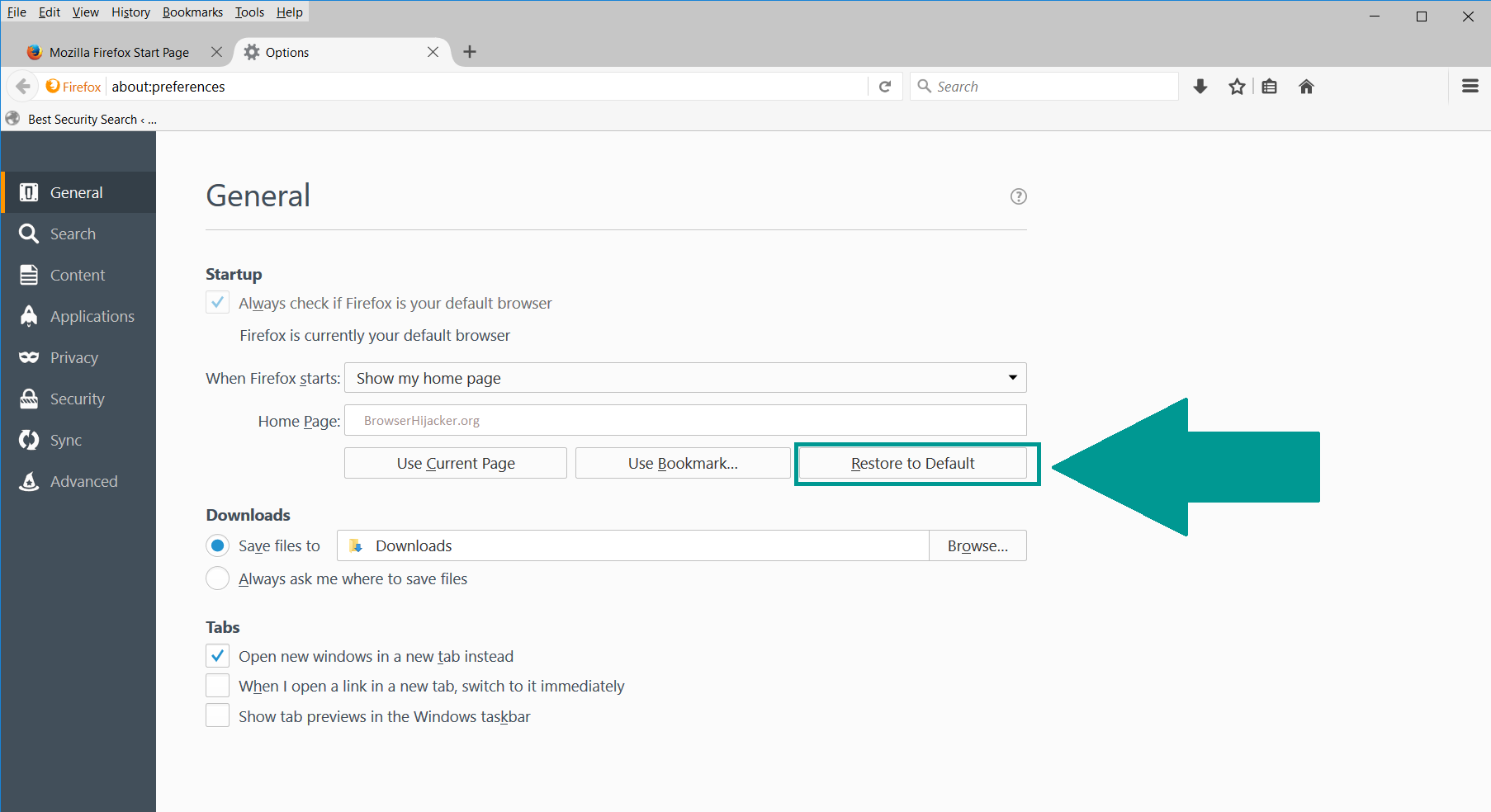
-
1. Start Internet Explorer. Go to the Tools menu and click on Manage add-ons.
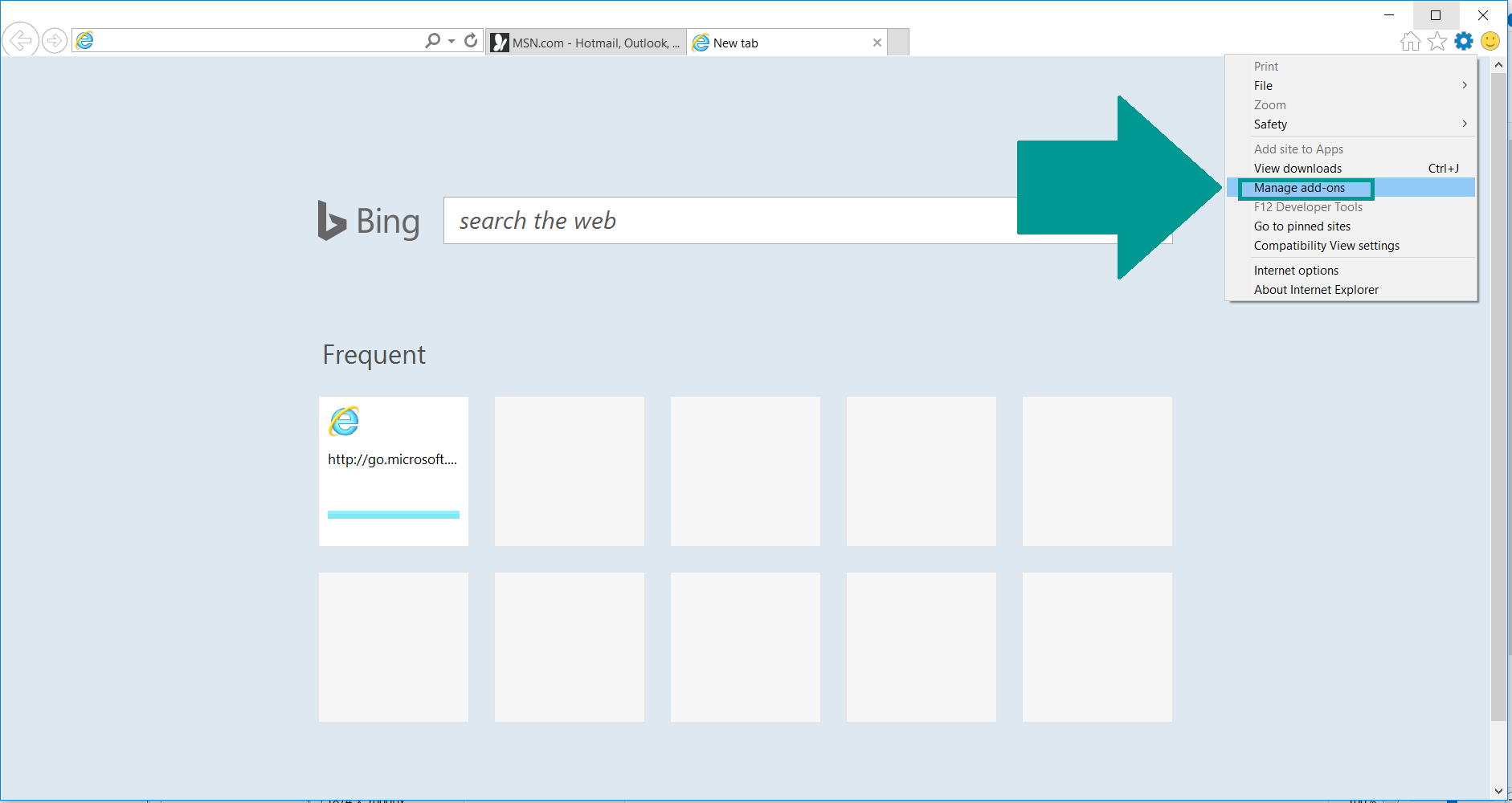
-
2. In the “Manage add-ons” window, bellow Add-on Types, select Toolbars and Extensions. If you see a suspicious toolbar, select it and click Remove.
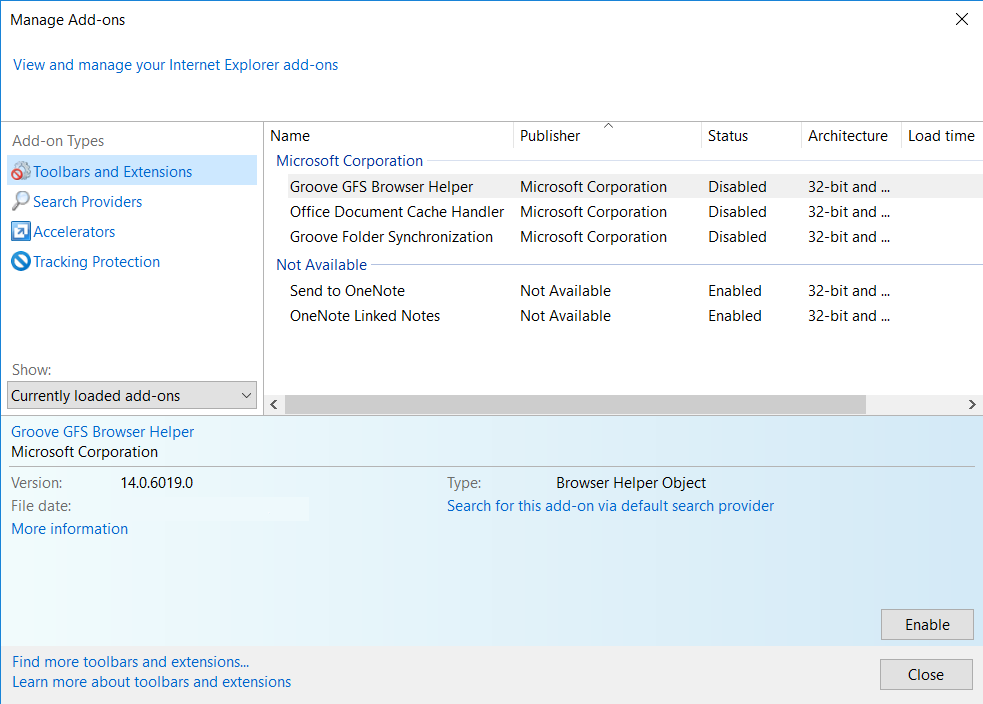
-
3. Then again in the Manage Add-ons window, in Add-on Types, Select Search Providers. Chose a search engine and click Set as default. Select the unknown search engine and click Remove and Close.
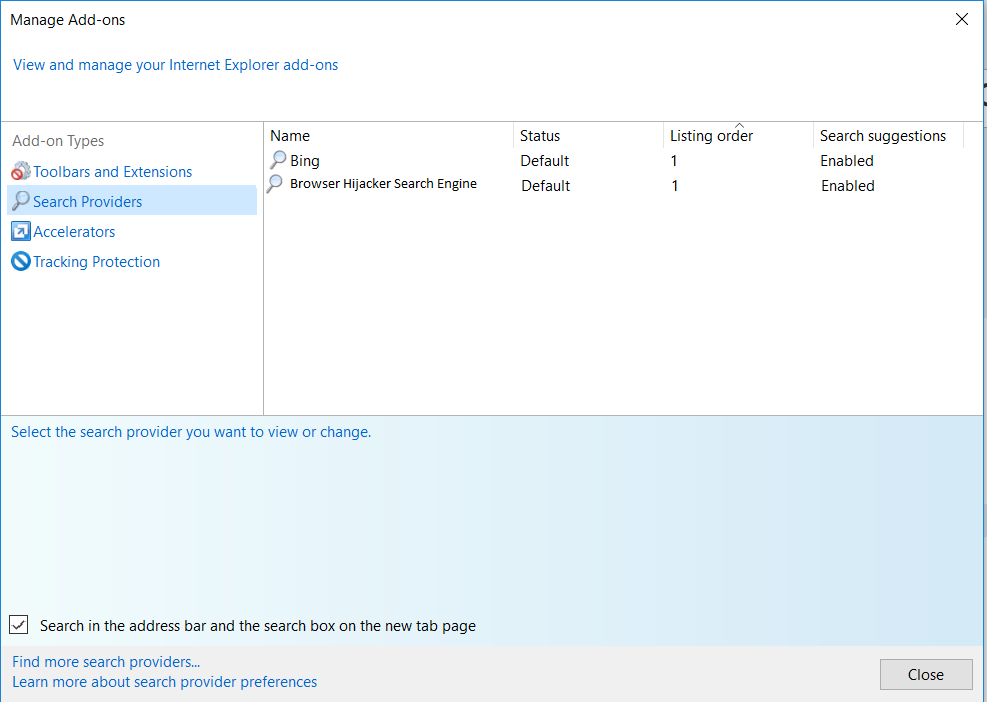
-
4. It’s time to reset the browser to its default settings. Open the Tools menu, select Internet Options.
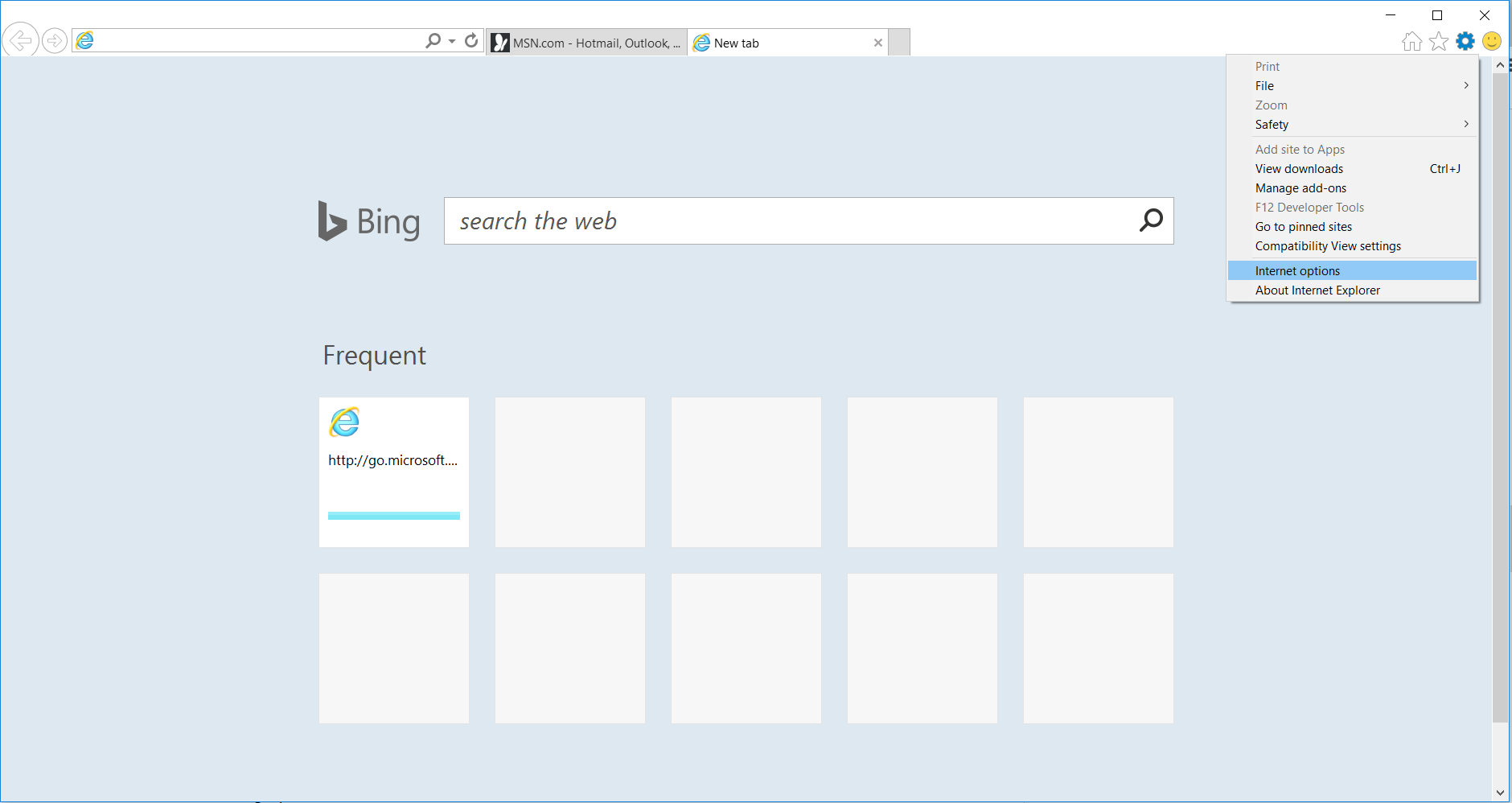
-
5. Click the Advanced tab and then click Reset at the botton. Keep follow the steps to the end.
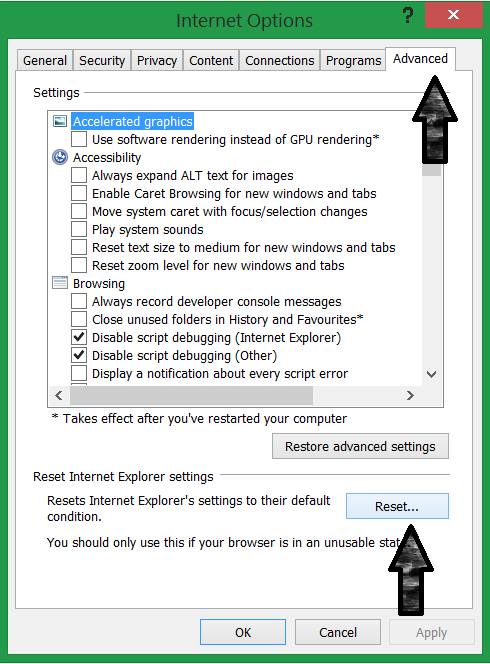
Step three: Scan your computer for existing malware with professional anti-malware software.
SpyHunter anti-malware tool will diagnose all current threats on the computer. By purchasing the full version, you will be able to remove all malware threats instantly. Additional information about SpyHunter / Help to uninstall SpyHunter
Step four: Change your Facebook password
- Go to the blue Facebook bar and click the pointer that is next to the Quick Help icon. Select
Settings - In the
General Account Settings tab click on thePassword row. - Type your current and new passwords and click
Save Changes
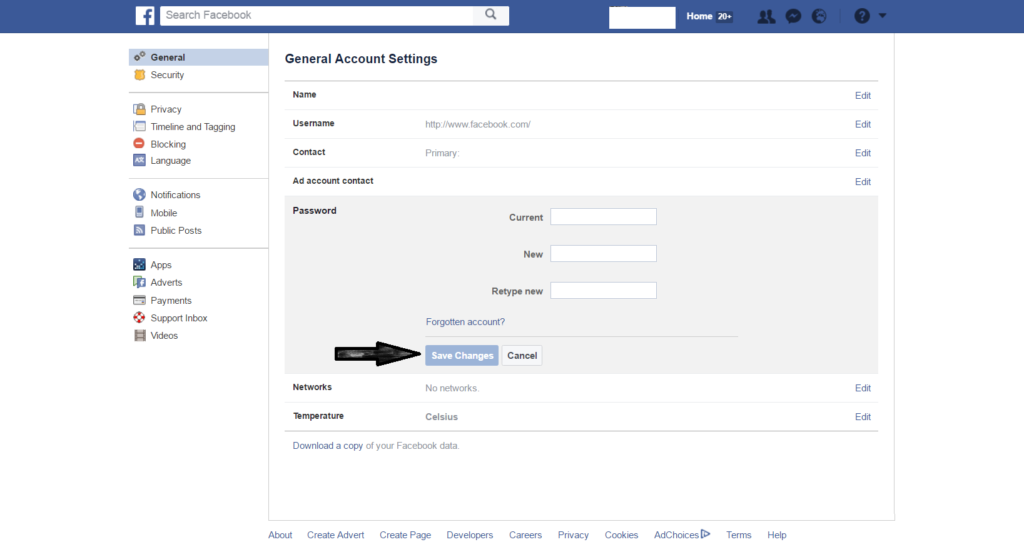
Step five: Don’t accept weird friend requests
If you want to prevent Facebook virus infection it’s better to delete all friend requests from random people of nowhere. Some traits of a spam Facebook account are fake profile photos; no mutual friends with you or no friends at all. It’s also common to see a picture of a half-naked woman as a profile picture. By accepting these spammy requests you make your account vulnerable to Facebook viruses’ and other malware intrusions as they can send you shady messages with suspicious links or post questionable content on your Facebook wall. Be sure to limit your friends list only to real people whom you actually know.
Step six: Notify your friends about the hack
If you notice that your Facebook profile is hacked do not forget to notify your friends about it. Put a status on your Facebook wall or write them all personally. Let them know that your account may be compromised by a virus and warn them to avoid clicking on any links, images or videos sent by your profile.
In conclusion, as long as Facebook viruses of different kinds endanger your system of serious malware infection, we advise you to think about the security of your system and its prevention. Having up to date anti-malware software remains one of the most reliable means for cyber safety and will stop the malware attacks before they harm your computer.



